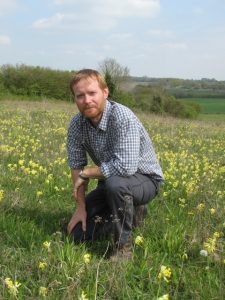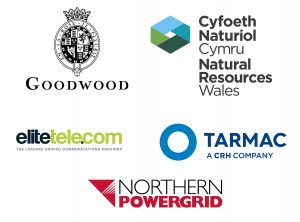A CHALLENGING FUTURE FOR NATIONAL PARKS?
October 10, 2017
This October representatives from all 15 of the UK’s national parks, and others hoping to gain national park status for their landscapes, will meet in the South Downs for their biennial conference. We asked our speakers what they think are the biggest challenges ahead for our national parks and what all UK national parks should be doing now.
The farmer
 William Wolmer
William Wolmer
William is the fifth generation of his family to manage Blackmoor Estate in Hampshire; a fruit and arable farm and diversified estate. Before this he worked for ten years as an academic researching smallholder agriculture and conservation in the developing world.
William also chairs the South Downs Land Managers Group and the Selborne Landscape Partnership, a cluster of farmers and land managers who are co-ordinating their agri-environmental management over a 4000 ha area enabling them to deliver conservation on a landscape scale.
The challenge for the future:
“Devising and securing new countryside stewardship arrangements or ecosystem services systems for national parks that will sustain the vitality of the types of land management that are themselves vital to the landscapes of national parks.”
Name one thing that national parks need to do:
“Put boots on the ground. National parks need a well-funded ranger service with a visible presence on the ground and the ability for the rangers themselves to provide small grants and match-funding for land managers, and organise volunteers, to enable projects that might otherwise never get off the ground.”
The international view
 Frank Dean, President & CEO of Yosemite Conservancy
Frank Dean, President & CEO of Yosemite Conservancy
Frank’s passion for the outdoors and conservation was inspired by a college trip to Yosemite. After four decades working with the US National Park Service he came full circle, becoming president and CEO for Yosemite Conservancy an organisation which fundraises to provide grants and support for the National Park.
The challenge for the future:
“It is important that local communities and visitors continue to value the parks, but they also need to value park values. While the natural landscape is the inspiration for the national parks, it is the people that provide both the greatest strength and challenge for the parks future.”
Name one thing that national parks need to do:
“Preserving the appeal of the parks and communities and the quality of the visitor experience is key. Continue to embrace opportunities to remain relevant with your communities and new audiences to ensure long term support.”
The champion for youth engagement
 Adam Philip-Phillips
Adam Philip-Phillips
Our youngest speaker Adam left school at 18 and at 19 got involved with Mosaic – a scheme to empower young people aged 16-25 to become champions for national parks. Having discovered a talent for leadership through Mosaic he went on to study at the University of Cumbria, researching youth engagement and social enterprise.
The challenge for the future:
“I believe the biggest challenge facing National Parks in the next two decades is proactively engaging young people and new volunteers, because volunteers are a major part of the national parks – without new volunteers coming in operations might not run normally.”
Name one thing that national parks need to do:
“Is there space to collaborate with other organisations who are more tech savvy? The pace that technology is advancing can be scary, and if the national parks don’t invest and embrace new technology then they could potentially be left behind other volunteer-based organisations.”
The economist
 Ian J. Bateman OBE, FRSA, FRSB
Ian J. Bateman OBE, FRSA, FRSB
Ian is Professor of Environmental Economics and Director of the Land, Environment, Economics and Policy Institute (LEEP) at the University of Exeter; he is a Royal Society Wolfson Research Merit award winner; and is a Member of the H.M. Treasury and UK Department for Environment, Food and Rural Affairs (Defra) Natural Capital Committee. His main research interest is ensuring sustainable wellbeing through the integration of natural and social science knowledge regarding the natural environment and related economic activity and his skills include the valuation of non-market benefits and costs.
The challenge for the future:
“Allowing National Parks to become thought of as an elitist pursuit for the few threatens them with the same uncertain fate as arts funding. Demonstrating both the existing and future benefits they can provide throughout society will secure their future. The Parks need to connect with people across the country so that they appreciate the value for money which national parks provide and the benefits of not just maintaining but of extending their operations and remit.”
Name one thing that national parks need to do:
“National Park leaders need to understand the diversity of values, benefits and potential costs which alternative investment and management options can provide to those within and beyond national park boundaries. This will allow the Parks to lead the way on delivering social wellbeing. Advances in data availability, research and new ways of connecting with people are creating opportunities to improving decision making. National Parks need to take advantage of these opportunities to demonstrate these many benefits such as: supporting wellbeing, provision of open access, conservation, reducing greenhouse gas emissions, high quality water supplies, flood risk reduction, sustainable food production and supporting sustainable business and employment.”
We’re looking forward to an inspiring time.
Thank you to the sponsors of the National Park UK Conference 2017: Goodwood Estate, Natural Resource Wales, Northern Power Grid, Elite Telecom, Tarmac

